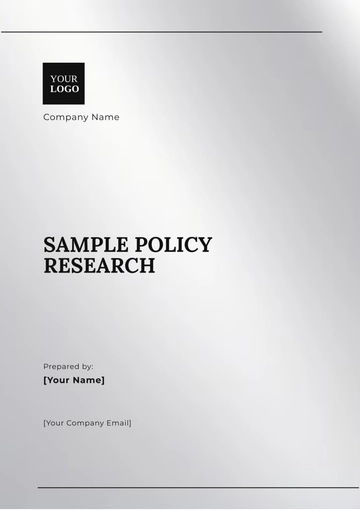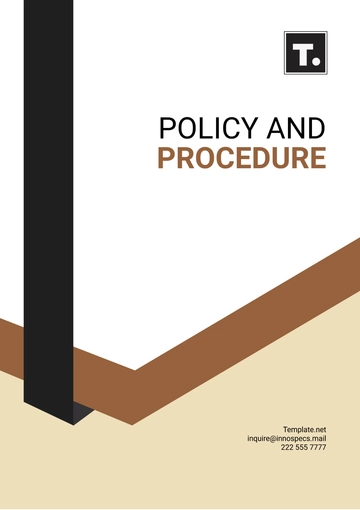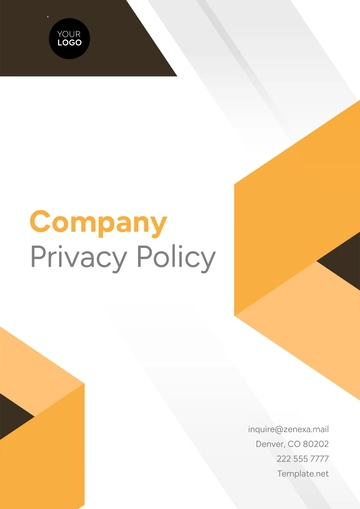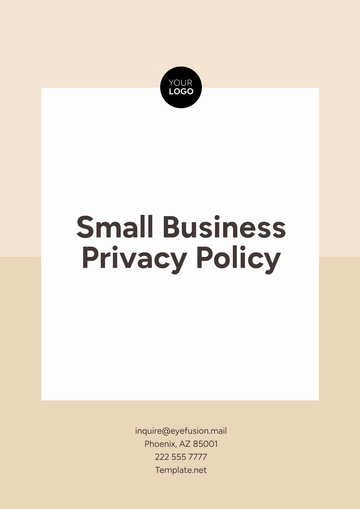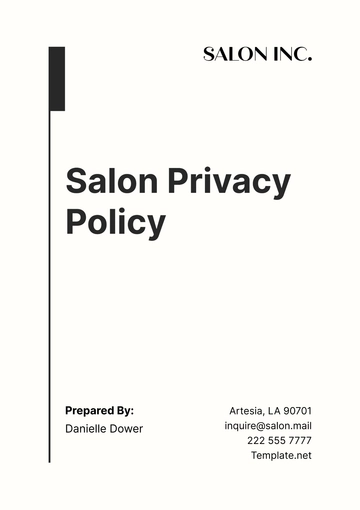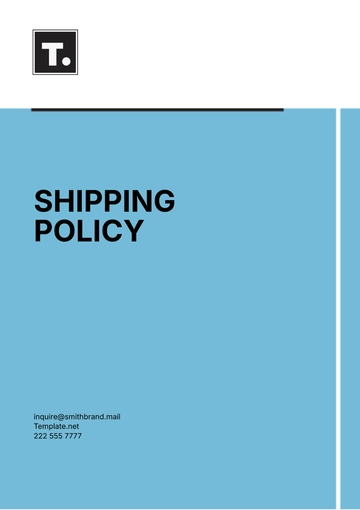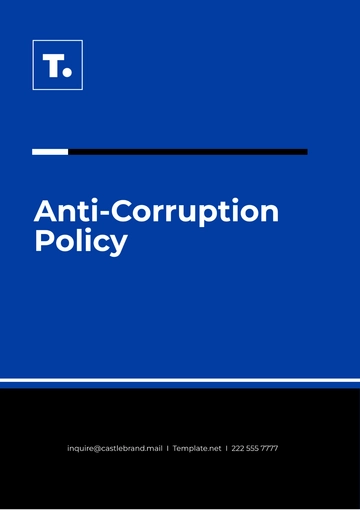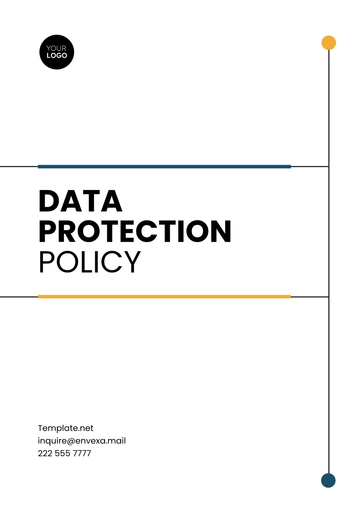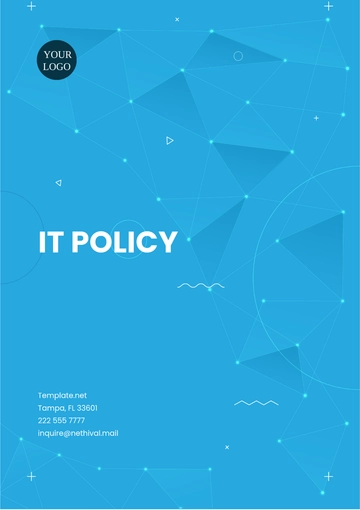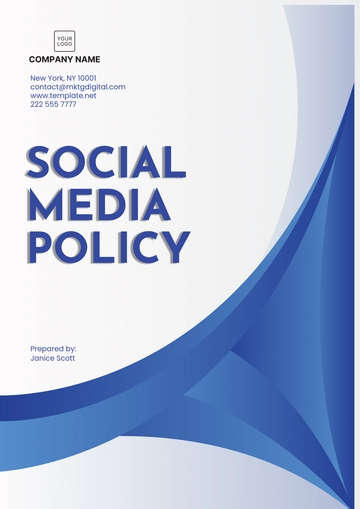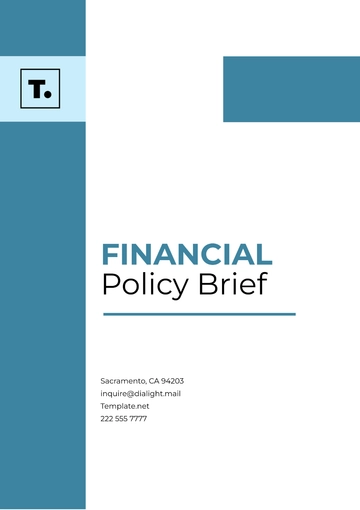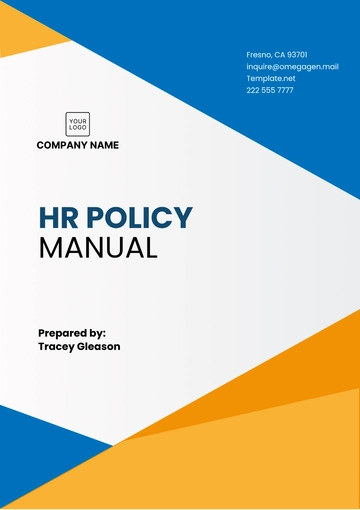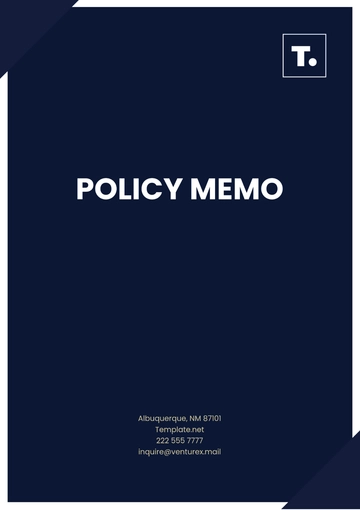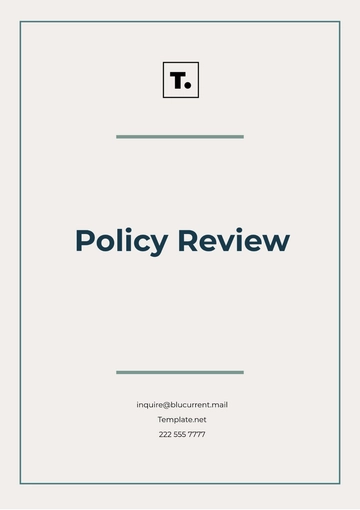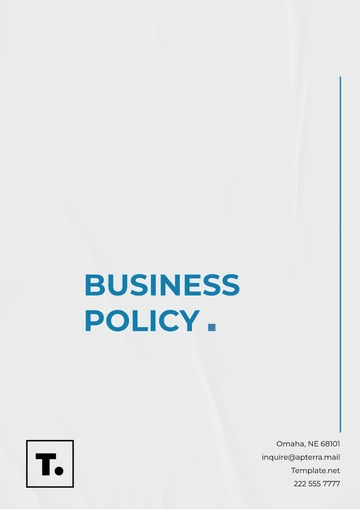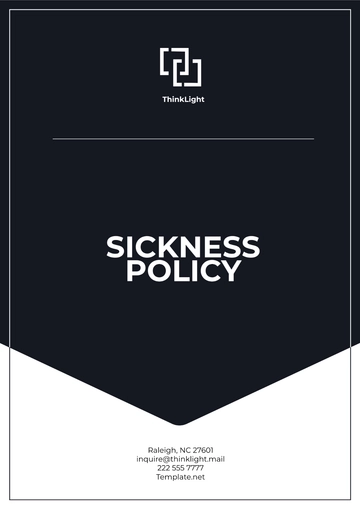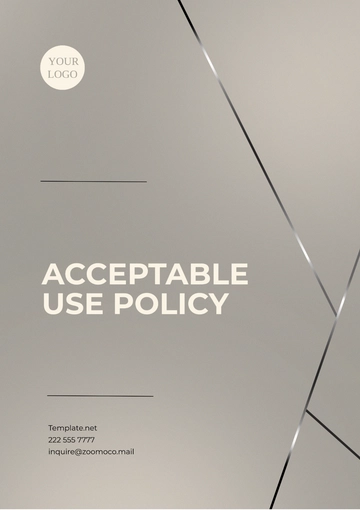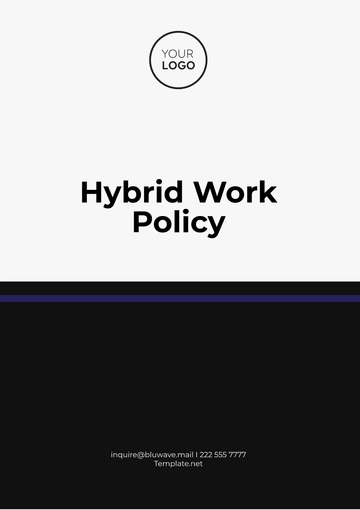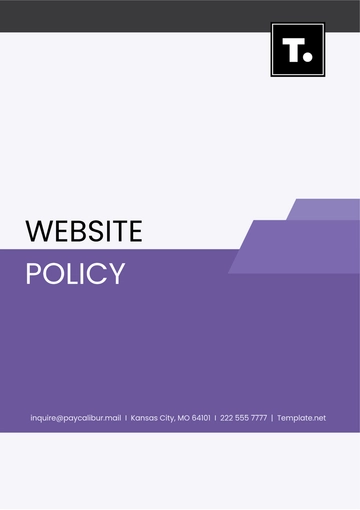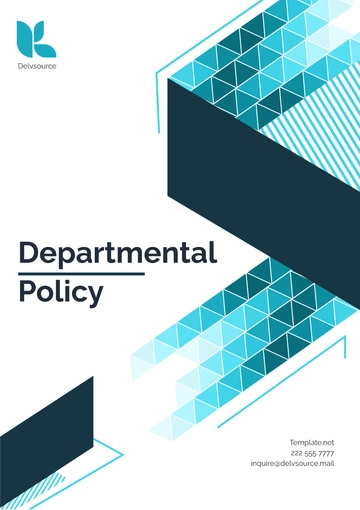Free Social Media Marketing Platform Policy
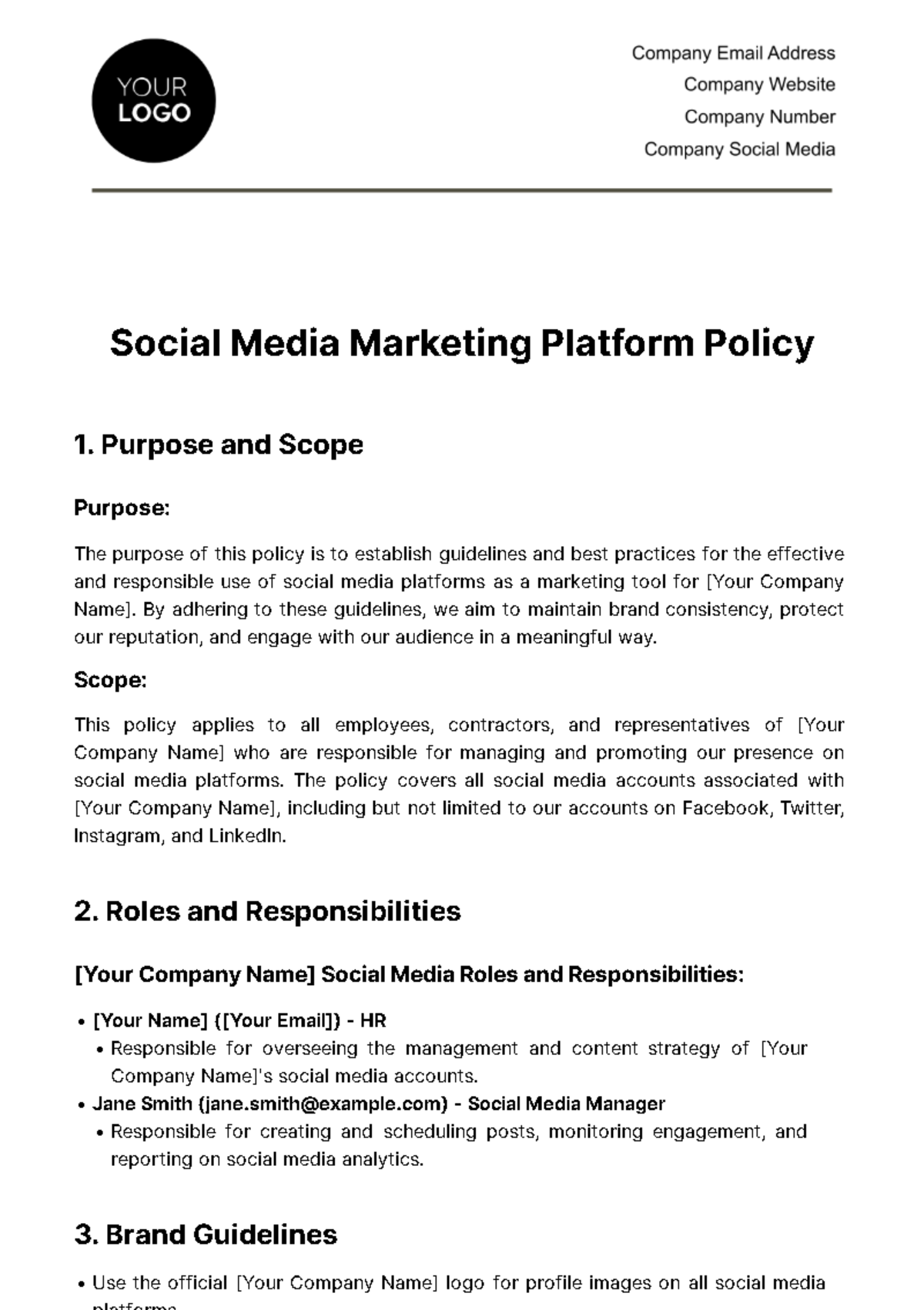
1. Purpose and Scope
Purpose:
The purpose of this policy is to establish guidelines and best practices for the effective and responsible use of social media platforms as a marketing tool for [Your Company Name]. By adhering to these guidelines, we aim to maintain brand consistency, protect our reputation, and engage with our audience in a meaningful way.
Scope:
This policy applies to all employees, contractors, and representatives of [Your Company Name] who are responsible for managing and promoting our presence on social media platforms. The policy covers all social media accounts associated with [Your Company Name], including but not limited to our accounts on Facebook, Twitter, Instagram, and LinkedIn.
2. Roles and Responsibilities
[Your Company Name] Social Media Roles and Responsibilities:
[Your Name] ([Your Email]) - HR
Responsible for overseeing the management and content strategy of [Your Company Name]'s social media accounts.
Jane Smith (jane.smith@example.com) - Social Media Manager
Responsible for creating and scheduling posts, monitoring engagement, and reporting on social media analytics.
3. Brand Guidelines
Use the official [Your Company Name] logo for profile images on all social media platforms.
Maintain a consistent tone of voice in all posts (e.g., professional, friendly, informal) to align with our brand identity.
Follow the color scheme and visual identity guidelines outlined in the [Your Company Name] Brand Manual when creating graphics or visuals for social media.
4. Content Guidelines
Share industry-related articles and news to position [Your Company Name] as a thought leader in the field.
Highlight [Your Company Name] products/services with engaging visuals and informative captions.
Promote company events and announcements to keep our audience informed and engaged.
Avoid discussing or sharing controversial topics or using offensive language.
Include relevant hashtags when appropriate to increase the discoverability of our content.
5. Posting Schedule
Facebook: | Post 5 times per week, with preferred posting times being 10:00 AM and 2:00 PM (local time). |
Twitter: | Tweet 3 times per day, with preferred posting times being 9:00 AM, 12:00 PM, and 3:00 PM (local time). |
Instagram: | Share 4 posts per week, with preferred posting times being 11:00 AM and 5:00 PM (local time). |
LinkedIn: | Post 3 times per week, with preferred posting times being 8:30 AM and 4:30 PM (local time). |
6. Engagement and Interaction
Respond to comments and messages within 24 hours of receiving them, whenever possible.
Acknowledge positive comments and thank followers for their support.
Address customer inquiries professionally and promptly, directing them to appropriate resources or departments as needed.
In case of negative comments or complaints, follow the [Your Company Name] Social Media Crisis Response Plan (if available) and escalate issues to the designated contact person, John Doe.
Avoid engaging in arguments or confrontations on social media. Respond to criticism with empathy and provide constructive solutions when appropriate.
7. Privacy and Data Protection
Do not share confidential customer information, such as personal details or contact information, on social media platforms.
Ensure compliance with all applicable data protection regulations, including GDPR, when handling customer data.
Encourage users to send sensitive inquiries or concerns through private messages or email rather than in public comments or posts.
8. Legal Compliance
Clearly label sponsored content as "Paid Partnership" or "Sponsored" in accordance with relevant advertising guidelines.
Respect copyright and trademark laws when using images, videos, or other content in social media posts.
Ensure that all content posted on social media complies with local, national, and international laws and regulations.
Familiarize yourself with and adhere to platform-specific policies and guidelines to avoid violations that could result in account suspension.
9. Crisis Management
Designate a Crisis Management Team, consisting of John Doe, Jane Smith, and Michael Johnson.
Develop pre-approved crisis response templates for common issues, including negative comments, product recalls, and data breaches.
Monitor social media for potential issues and respond promptly using established crisis communication procedures.
Notify the Crisis Management Team and John Doe immediately in the event of a social media crisis or any situation that may negatively impact the company's reputation.
Keep a record of all crisis-related communication and actions taken for future reference and analysis.
10. Monitoring and Reporting
Utilize Social Media Analytics Tool, such as Google Analytics and Hootsuite Analytics, to track key metrics, including engagement rates, reach, click-through rates, and conversion rates.
Regularly review and analyze social media performance data to identify trends, successful strategies, and areas for improvement.
Provide monthly reports on social media performance to [Your Company Name] management and stakeholders.
Use the insights gained from analytics to adjust the social media strategy and content plan for continuous improvement.
Monitor and report any anomalies or unusual activity on social media platforms that may require further investigation.
11. Employee Guidelines
Avoid making derogatory or offensive remarks about [Your Company Name] on personal social media profiles.
Respect the privacy and confidentiality of colleagues and clients.
Refrain from sharing confidential company information or sensitive data on personal social media accounts.
Employees representing [Your Company Name] on personal social media profiles should do so in a professional and respectful manner.
12. Training and Education
[Your Company Name] provides training sessions and resources on social media best practices to employees involved in managing company social media accounts.
Training sessions cover topics such as social media etiquette, legal compliance, and crisis management.
Employees are encouraged to attend these training sessions regularly to stay updated on the latest social media trends and policies.
Additional resources and guidance are available on [Your Company Website] for ongoing education and support.
13. Enforcement and Consequences
Violations of this policy may result in disciplinary actions, up to and including termination, depending on the severity of the violation.
Employees who witness violations are encouraged to report them to their immediate supervisor or Susan Williams.
All reported violations will be thoroughly investigated, and appropriate actions will be taken in line with [Your Company Name]'s disciplinary procedures.
[Your Company Name] is committed to ensuring a safe and respectful online environment for its employees and stakeholders.
14. Review and Updates
This policy will be reviewed annually or as needed to ensure relevance and alignment with industry trends and platform policies.
Updates and revisions to this policy can be proposed by any employee and will be reviewed by the Social Media Governance Committee.
[Your Company Name] is dedicated to maintaining the effectiveness of its social media marketing efforts and will adjust this policy accordingly.
- 100% Customizable, free editor
- Access 1 Million+ Templates, photo’s & graphics
- Download or share as a template
- Click and replace photos, graphics, text, backgrounds
- Resize, crop, AI write & more
- Access advanced editor
Discover unparalleled ease in crafting your social media marketing policies with Template.net's Social Media Marketing Platform Policy Template. This editable and customizable resource empowers you to tailor policies to your brand's unique needs. Seamlessly edit in our Ai Editor Tool for swift customization. Unlock your brand's potential with confidence and compliance.
You may also like
- HR Policy
- Restaurant Policy
- Company Policy
- Accounting Policies and Procedures
- Website Policy
- Privacy Policy
- Safety Policy
- School Policy
- IT and Software Policy
- Law Firm Policy
- Construction Policy
- Interior Design Policy
- Travel Agency Policy
- Education Academic Policy
- Security Policy
- Real Estate Policy
- Expense Policy
- Software Policy
